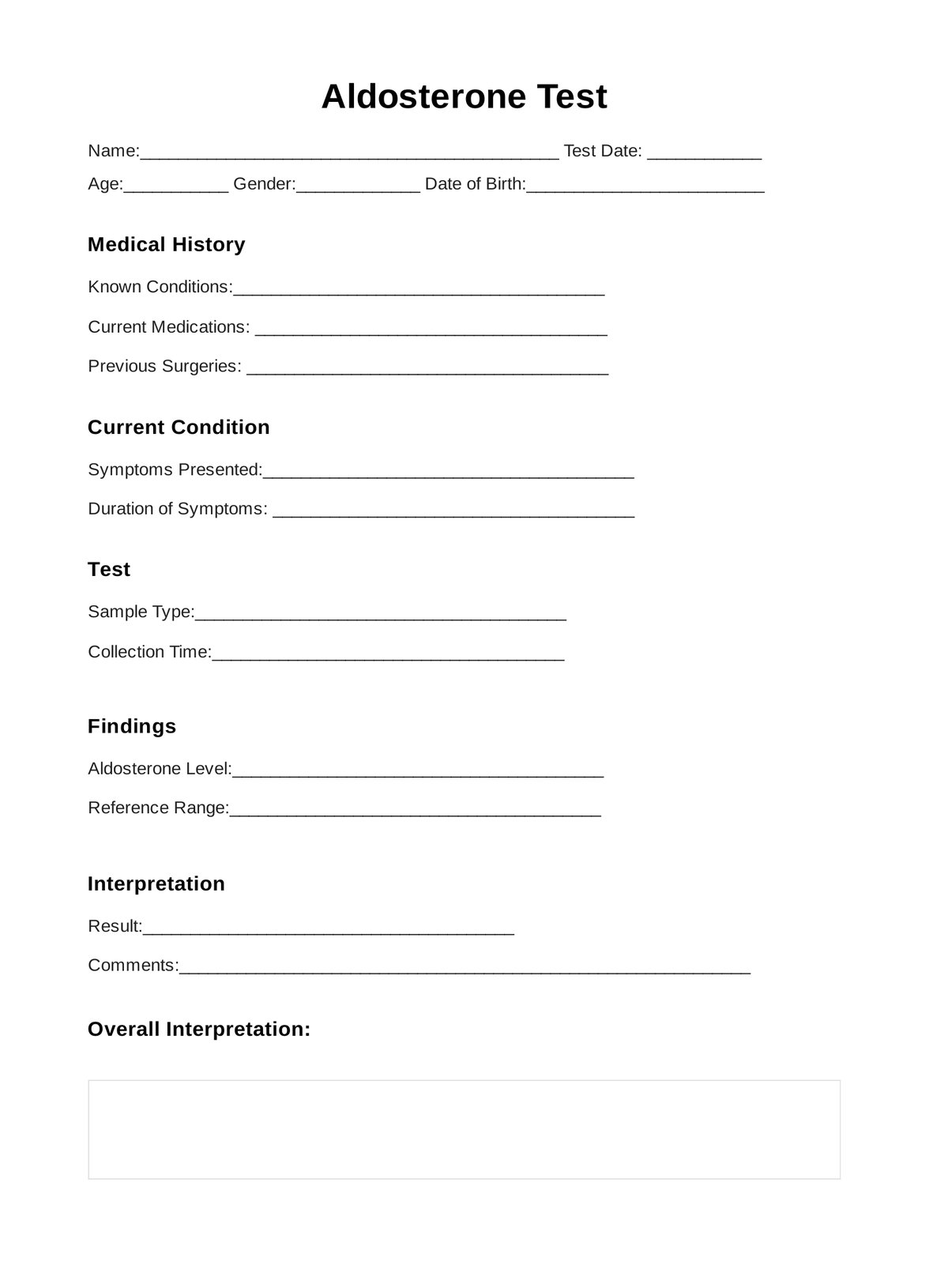Carepatron is steadfast in its commitment to data security, complying with international standards such as HIPAA, GDPR, and HITRUST to guarantee patient information remains protected.

Aldosterone
Explore the intricacies of the Aldosterone Test with Carepatron's comprehensive guide. From test specifics to benefits and FAQs, get all your answers here!
Use Template
Aldosterone Template
Commonly asked questions
While the Aldosterone Test template is tailored for this specific test, Carepatron offers a range of templates suitable for various hormonal tests, ensuring flexibility and comprehensiveness.
Carepatron is designed to bolster collaboration, enabling seamless sharing of test results and notes across your team, professional network, and patients, irrespective of their physical location.
EHR and practice management software
Get started for free
*No credit card required
Free
$0/usd
Unlimited clients
Telehealth
1GB of storage
Client portal text
Automated billing and online payments











